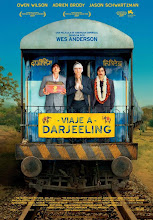Wednesday, May 27, 2009
Vermont
As for my own travels, next year I will be leaving Gloucester, MA, and opting for Saint Michael's College in Colchester, VT.
Wednesday, May 20, 2009
Pachuca Sunrise
Pachuca Sunrise
Minus The Bear
Midnight on a beach in the Mediterranean
And I miss you
Even here, taking it all in
The sand, silvered, carries the moon on its shoulders
Is it possible to put this night to tune, and move it to you?
Don't cry, I'll bring this home to you,
If I can make this night light enough to move
Don't cry, i'll bring this home to you
Cargo ships move by, tracing on the horizon line
There's a luster from the city lights on the waves that kiss our feet
And we're thinkin' of goin' in (thinkin' of goin' in),
The time's getting thin
Don't cry I'll bring this home to you,
If I can make this night light enough to move
Don't cry I'll bring this home to you,
If I can make this, if I can make this...
Don't cry I'll bring this home to you,
If I can make this night light enough to move
Don't cry I'll bring this home to you
This is a city for not sleeping; The clocks are set by feel
At this moment, from where I sit, none of it seems real
Don't cry I'll bring this home to you,
If I can make this night light enough to move
Don't cry I'll bring this home to you,
If I can make this night light enough to move
If I can make this, if I can make this move
If I can make this move
Minus The Bear
Midnight on a beach in the Mediterranean
And I miss you
Even here, taking it all in
The sand, silvered, carries the moon on its shoulders
Is it possible to put this night to tune, and move it to you?
Don't cry, I'll bring this home to you,
If I can make this night light enough to move
Don't cry, i'll bring this home to you
Cargo ships move by, tracing on the horizon line
There's a luster from the city lights on the waves that kiss our feet
And we're thinkin' of goin' in (thinkin' of goin' in),
The time's getting thin
Don't cry I'll bring this home to you,
If I can make this night light enough to move
Don't cry I'll bring this home to you,
If I can make this, if I can make this...
Don't cry I'll bring this home to you,
If I can make this night light enough to move
Don't cry I'll bring this home to you
This is a city for not sleeping; The clocks are set by feel
At this moment, from where I sit, none of it seems real
Don't cry I'll bring this home to you,
If I can make this night light enough to move
Don't cry I'll bring this home to you,
If I can make this night light enough to move
If I can make this, if I can make this move
If I can make this move
In some instances the focal point of the work of art is not so much the travel, but the feelings evoked by leaving someone behind. This feeling is captured in lyrics in the song “Pachuca Sunrise” by one of my personal favorite bands, Minus The Bear. Within the lyrics the protagonist of the song reflects upon the surreal nature of being a strange place and missing someone so much, it affects the perception.
As the speaker stands on a beach in the Mediterranean he is not allowed to fully absorb his surroundings, as his mind is full of thoughts of the one back home.
In a similar manner to the Darjeeling Limited and On The Road this song reflects on the way leaving a place or a person and seeing things one has never seen or experience before can bring a person closer to people. However, unlike the other two works, the closeness does not coming from sharing the experience of the voyage, it comes from not being a part of it. The absence of a thing makes one realize how important it really is.
Tuesday, May 19, 2009
The Darjeeling Limited
In a work of literature traveling can be both a euphemism for finding oneself and also, finding one's family as well.
In Wes Anderson's film, The Darjeeling Limited, three estranged brothers take a misguided trip through India after the death of their father, and end up drawing themselves closer as a family.
"I wonder if the three of us would've been friends in real life. Not as brothers, but as people. " - Jack
In Anderson's movie, written in part by himself, Jason Swartzman and Roman Coppola the three Whitman brothers, Francis, Peter, and Jack, all meet on a train in India for a trip across the country that Francis has organized as a means of bringing the three very different men together again.
As the train crosses India Francis struggles to get his brothers to open themselves up to each other. All three men struggle to keep from receding into themselves, Jack has his obsession with his writings and his ex-girlfriend, Peter worries about the upcoming birth of his child and his relationship with his wife, and Francis tries to keep his true motive for the trip secret from his brothers. The landscape of India offers up a completely surreal setting that whisks the brothers seemingly away for a moment, from their own problems, and allows them to focus on their bonds with each other.
"We haven't located us yet. " - Brendan
The close confines of the train compartment eventually force the brothers to begin opening up to each other and working through the rifts caused by the death of their father. The relationship however, still holds some contention, and eventually leads to a fight that causes the brothers to be ejected from the train and left in rural India.
By losing their last sense of familiarity, the brothers are left with only themselves and each other for comfort and survival. As they try to make their way towards some form of civilization they come upon three young boys, brothers, like themselves, caught in a churning river. All three Whitman brothers jump into the water and attempt to save the boys, succeeding in saving 2 of the three.
It is the death of the third brother, that brings the Whitmans to their senses and allows them to see the bond they had been busying trying to chip away at. Anderson's use of the three young Indian boys as a foil to the Whitmans themselves, and allowing the men to see the pain caused by the loss of one brother brings them all closer.
The Whitman's journey is one of self discovery and of the rediscovery of lost bonds. For the brothers the trip across India is more than just a physical journey, it's twists and hardships mirror their relationships with eachother. It is because of this mirroring tendency that it is only when the brothers have been stripped of everything and left in the middle of no-where that they are able to comprehend what they may lose, and see themselves as the detached men they have become.
"You're the two most important people in the world to me. I've never said that before, but it's true, and I want you both to know it. I love you, Peter - Francis
Thank you. -Peter
I love you, Jack. - Francis
I love you, too. - Jack
How did it get to this? - Francis "
In Wes Anderson's film, The Darjeeling Limited, three estranged brothers take a misguided trip through India after the death of their father, and end up drawing themselves closer as a family.
"I wonder if the three of us would've been friends in real life. Not as brothers, but as people. " - Jack
In Anderson's movie, written in part by himself, Jason Swartzman and Roman Coppola the three Whitman brothers, Francis, Peter, and Jack, all meet on a train in India for a trip across the country that Francis has organized as a means of bringing the three very different men together again.
As the train crosses India Francis struggles to get his brothers to open themselves up to each other. All three men struggle to keep from receding into themselves, Jack has his obsession with his writings and his ex-girlfriend, Peter worries about the upcoming birth of his child and his relationship with his wife, and Francis tries to keep his true motive for the trip secret from his brothers. The landscape of India offers up a completely surreal setting that whisks the brothers seemingly away for a moment, from their own problems, and allows them to focus on their bonds with each other.
"We haven't located us yet. " - Brendan
The close confines of the train compartment eventually force the brothers to begin opening up to each other and working through the rifts caused by the death of their father. The relationship however, still holds some contention, and eventually leads to a fight that causes the brothers to be ejected from the train and left in rural India.
By losing their last sense of familiarity, the brothers are left with only themselves and each other for comfort and survival. As they try to make their way towards some form of civilization they come upon three young boys, brothers, like themselves, caught in a churning river. All three Whitman brothers jump into the water and attempt to save the boys, succeeding in saving 2 of the three.
It is the death of the third brother, that brings the Whitmans to their senses and allows them to see the bond they had been busying trying to chip away at. Anderson's use of the three young Indian boys as a foil to the Whitmans themselves, and allowing the men to see the pain caused by the loss of one brother brings them all closer.
The Whitman's journey is one of self discovery and of the rediscovery of lost bonds. For the brothers the trip across India is more than just a physical journey, it's twists and hardships mirror their relationships with eachother. It is because of this mirroring tendency that it is only when the brothers have been stripped of everything and left in the middle of no-where that they are able to comprehend what they may lose, and see themselves as the detached men they have become.
"You're the two most important people in the world to me. I've never said that before, but it's true, and I want you both to know it. I love you, Peter - Francis
Thank you. -Peter
I love you, Jack. - Francis
I love you, too. - Jack
How did it get to this? - Francis "
Monday, May 18, 2009
On The Road
"They danced down the streets like dingledodies, and I shambled after as I've been doing all my life after people who interest me, because the only people for me are the mad ones, the ones who are mad to live, mad to talk, mad to be saved, desirous of everything at the same time, the ones that never yawn or say a commonplace thing, but burn, burn, burn..." Part 1, Chapter 1.
Perhaps one of the most easily recognizable works where a journey is one of the focal points is the Beat classic On The Road by Jack Kerouac. The work focuses on the mad dash across the country made by Sal Paradise and the crazy, colorful, wonderful people he meets and learns from and teaches along the way. On The Road
"Our battered suitcases were were piled on the sidewalk again; we had longer ways to go. But no matter, the road is life." Part 3, Chapter 5.
In Kerouac's novel his protagonist starts off the story as a disenchanted youth, scraping out a living squatting in his mother's house in Brooklyn. Sal Paradise thirsts for something more than what he has seen, he thirsts for inspiration, for something to be able to write about, something to enrich himself.
"I like too many things and get all confused and hung-up running from one falling star to another till I drop. This is the night, what it does to you. I had nothing to offer anybody except my own confusion." Part 2, Chapter 4.
The protagonist finds this zest that he was in search of in a mad, hot, rush of a journey across the United States sometimes at the side of Dean Moriarty, another more wild ruckus youth, who opens up the magic of the road for Paradise.
For Paradise, and in turn his author and basis, Kerouac, a journey is a representation of the true unhinged freedom America has to offer. The road is an opening door, an outlet to find anything one's heart desires. The road is a way to meet the people and see the places that change and alter the perceptions.
"And for just a moment I had reached the point of ecstasy that I always wanted to reach, which was the complete step across chronological time into timeless shadows, and wonderment in the bleakness of the mortal realm, and the sensation of death kicking at my heels to move on, with a phantom dogging its own heels..." Part 2, Chapter 10
As the story evolves and Sal Paradise weaves across the American continent he finally becomes the man he sought after in his mother's dingy apartment. He sees things that inspire and intrigue him, he meets the people that help to shape his voice, and from these pieces he acquires On The Road he forms a new man.
"Behind us lay the whole of America and everything Dean and I had previously known about life, and life on the road. We had finally found the magic land at the end of the road and we never dreamed the extent of the magic." Part 4, Chapter 5
Perhaps one of the most easily recognizable works where a journey is one of the focal points is the Beat classic On The Road by Jack Kerouac. The work focuses on the mad dash across the country made by Sal Paradise and the crazy, colorful, wonderful people he meets and learns from and teaches along the way. On The Road
"Our battered suitcases were were piled on the sidewalk again; we had longer ways to go. But no matter, the road is life." Part 3, Chapter 5.
In Kerouac's novel his protagonist starts off the story as a disenchanted youth, scraping out a living squatting in his mother's house in Brooklyn. Sal Paradise thirsts for something more than what he has seen, he thirsts for inspiration, for something to be able to write about, something to enrich himself.
"I like too many things and get all confused and hung-up running from one falling star to another till I drop. This is the night, what it does to you. I had nothing to offer anybody except my own confusion." Part 2, Chapter 4.
The protagonist finds this zest that he was in search of in a mad, hot, rush of a journey across the United States sometimes at the side of Dean Moriarty, another more wild ruckus youth, who opens up the magic of the road for Paradise.
For Paradise, and in turn his author and basis, Kerouac, a journey is a representation of the true unhinged freedom America has to offer. The road is an opening door, an outlet to find anything one's heart desires. The road is a way to meet the people and see the places that change and alter the perceptions.
"And for just a moment I had reached the point of ecstasy that I always wanted to reach, which was the complete step across chronological time into timeless shadows, and wonderment in the bleakness of the mortal realm, and the sensation of death kicking at my heels to move on, with a phantom dogging its own heels..." Part 2, Chapter 10
As the story evolves and Sal Paradise weaves across the American continent he finally becomes the man he sought after in his mother's dingy apartment. He sees things that inspire and intrigue him, he meets the people that help to shape his voice, and from these pieces he acquires On The Road he forms a new man.
"Behind us lay the whole of America and everything Dean and I had previously known about life, and life on the road. We had finally found the magic land at the end of the road and we never dreamed the extent of the magic." Part 4, Chapter 5
The Beginning
The subject of this blog is the motif of travel, and the physical journey, and it's impact upon a work of art. In many works the themes are made clear and evolve as the subject makes a physical journey. I want to explore how the change of scenery and the obstacles posed by a journey impact and change a work.
Subscribe to:
Posts (Atom)


